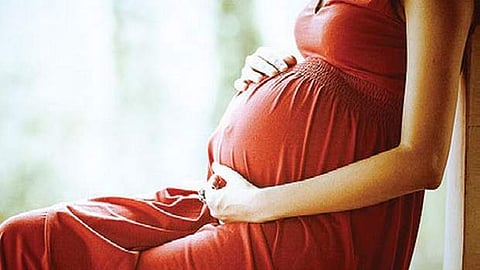

BENGALURU: Even as the World Health Organisation said on Thursday that some vaccines are not safe for pregnant women, gynaecologists and fertility experts in India have urged people planning to have a baby to wait until two months after they get the vaccine against Covid-19.
“While vaccine developers are not saying that people should postpone pregnancy, including through IVF, we are urging women to wait two months after taking the jab to get pregnant,” said Dr Suman Singh, renowned gynaecologist from BirthRight by Rainbow Children’s Hospitals.
She said that the European Society of Human Reproduction and Embryology (ESHRE) has reaffirmed its earlier guidance for safe Assisted Reproductive Technology (ART) practices.
Even after the start of large-scale vaccination programmes, ESHRE recommends continued observance of its previous guidance on modified services and risk mitigation measures in line with local epidemiological data.
“A decision on whether to use the vaccine in pregnant women should be made in close consultation with a healthcare professional after considering the benefits and risks. Hence, ESHRE recommends monitoring the outcomes of ART and compare them in vaccinated versus unvaccinated patients,” Dr Singh added.
Meanwhile, the Centre has stated that pregnant and lactating women have not been part of any Covid vaccine clinical trial so far and should not receive the vaccine at this time.
Meanwhile, vaccines such as the one against rubella that use live attenuated germs, are generally given to women when they are not pregnant.
A live attenuated vaccine contains a live virus with reduced potency which can potentially harm the baby in the uterus, said Dr Manisha Singh, senior consultant, gynaecology and reproductive medicine, Fortis Hospital, Bannerghatta Road.
“In the time that it takes the mother to develop antibodies, the live virus can cross the placenta and affect the baby. For example, live Rubella vaccine can damage the baby’s vision, hearing, and may cause mental sub-normality. Therefore, the safest is to delay pregnancy for six to eight weeks after taking the vaccine. As for the Covid vaccine, we do not have long-term safety data for pregnancy. Therefore, it is best to avoid pregnancy for up to eight weeks after vaccination,” she said.
Though both Covishield and Covaxin are inactive vaccines (which use dead virus), it is inadvisable to take them while pregnant experts say.
There are very minor biological similarities between the spike protein the body creates after being vaccinated against Covid-19 and syncitin-1, the protein involved in placental development.
“But the two are not similar enough for the spike protein to launch an immune response to syncitin-1 that would endanger the mother’s ability to carry a baby to term,” said a senior doctor.
“Basically, there is no data related to pregnancy or infertility treatments. The virus is new, the vaccines are new. In this scenario, we have no option but to wait and study the cases. As doctors we are explaining this to our clients. I feel it is better to either take the vaccine and wait for two months before trying for any treatment,” Dr Devika Gunasheela, managing director and senior IVF consultant at Gunasheela Surgical and Maternity Hospital.